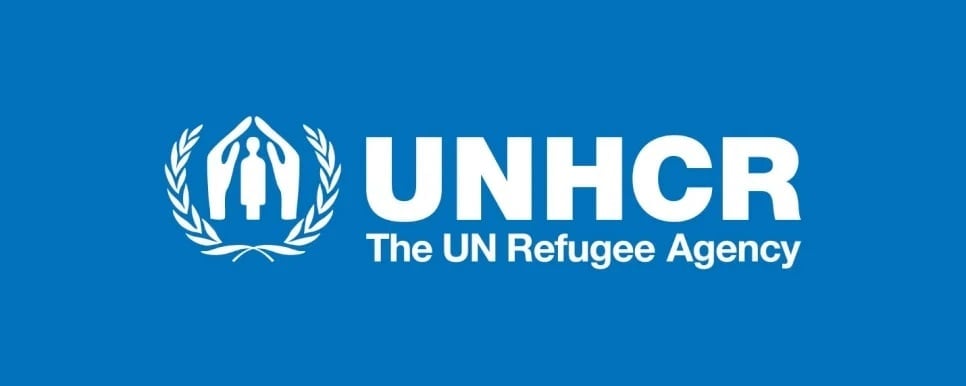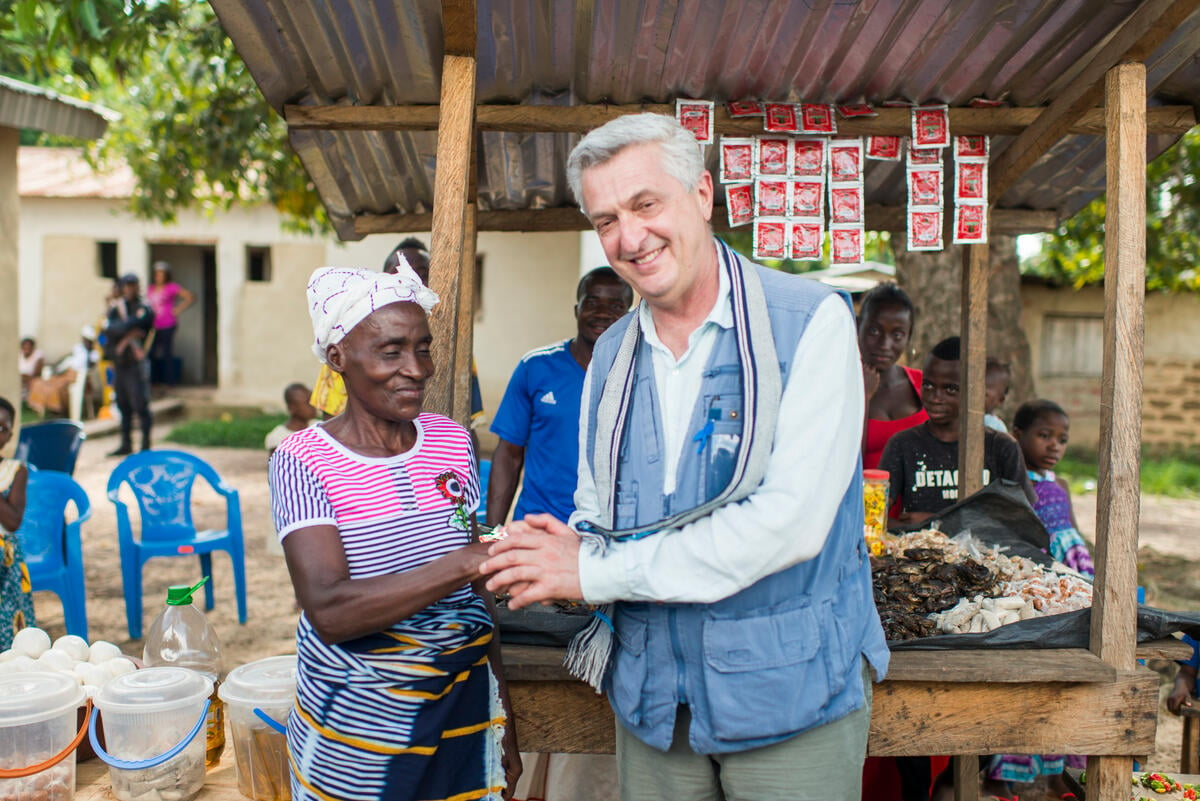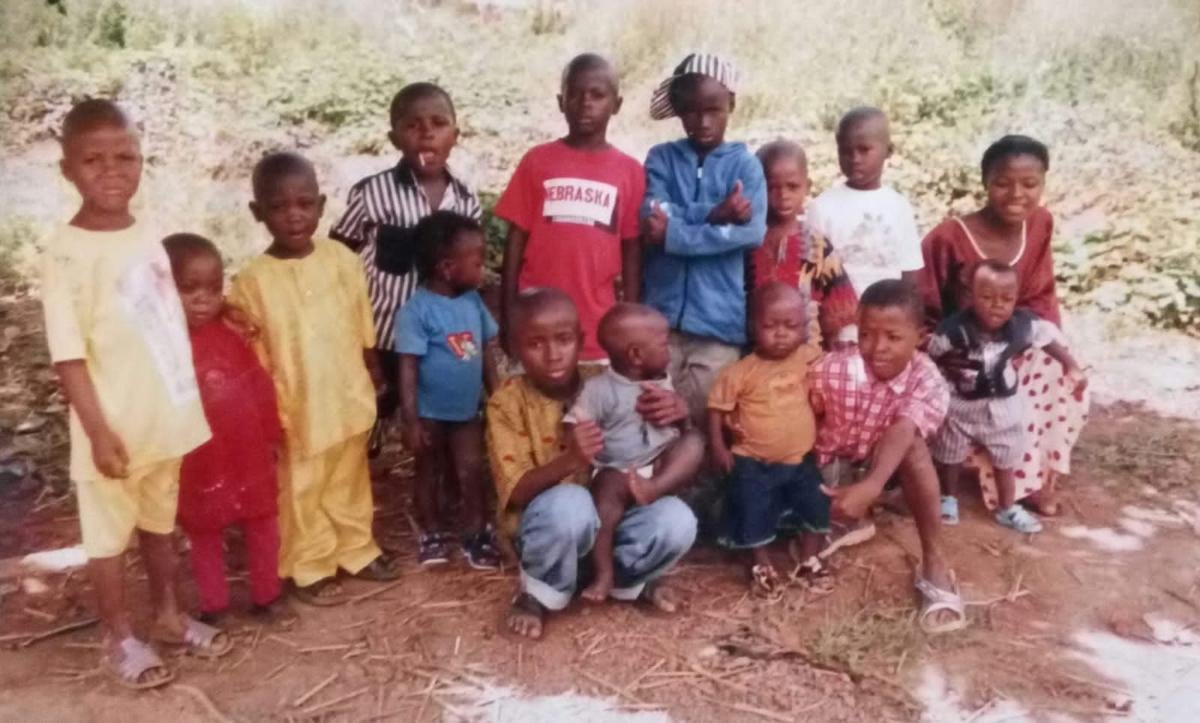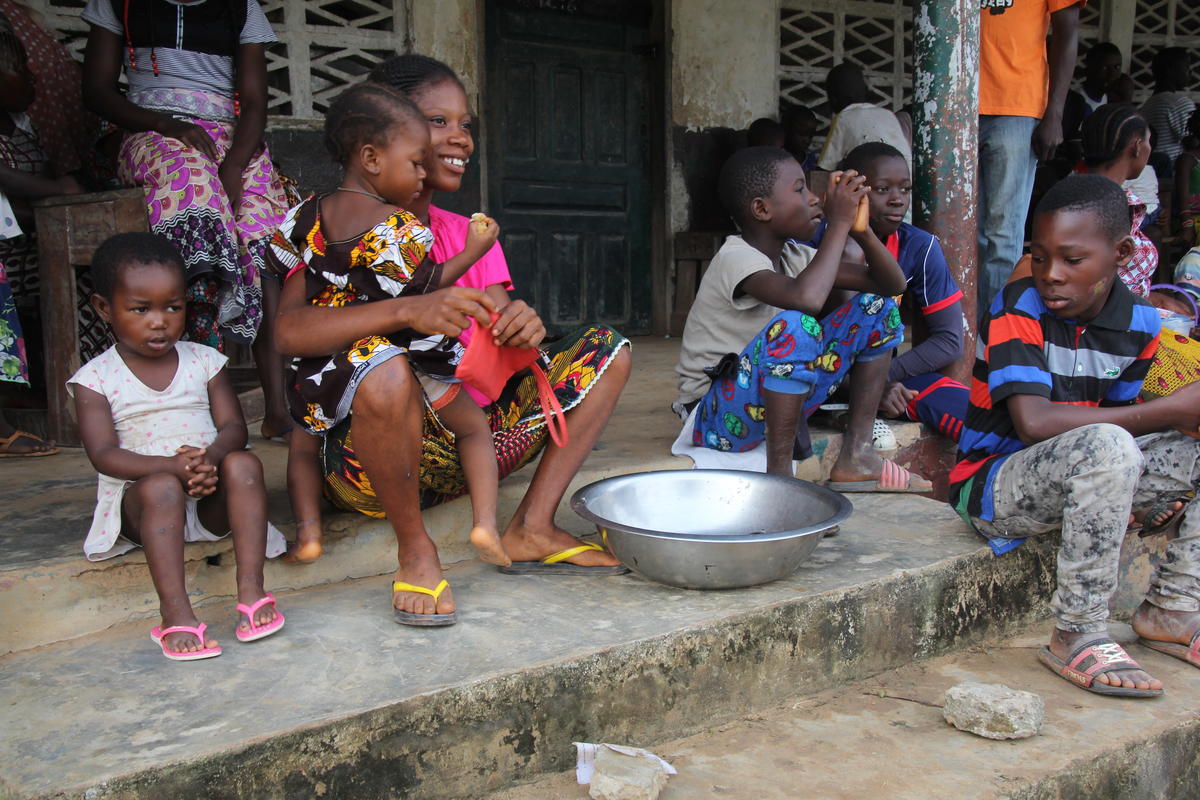Gunfire hits UNHCR compound in Monrovia
Gunfire hits UNHCR compound in Monrovia

MONROVIA, Liberia, July 25 (UNHCR) - Tensions have hit a new high in and around the UN refugee agency compound in Monrovia, where shelling today killed several people nearby and barely missed hundreds of others encamped in the UNHCR office, including two women in labour.
On Friday morning, UNHCR staff in Monrovia reported that more than 10 people had been killed by a fresh barrage of mortar fire in the Mamba Point area of Monrovia, which houses diplomatic missions and other international organisations. Encouraged by a lull in fighting on most of Thursday, the victims had ventured out for food and water supplies and were killed at a water-point in a public school close to the UNHCR compound.
At the UNHCR compound itself, stray gunfire shattered the windows of an office that was being used as a maternity room after a Sierra Leonean woman went into labour at the first sounds of shelling in the morning. No one was hurt in the incident. The woman in labour was transferred to another office and had yet to deliver her baby as of mid-day. There were reports that another woman had also gone into labour. The UNHCR ambulance managed by the agency's health partner, MERCY, was unable to collect the two pregnant women due to heavy shelling in the area. Staff members have been trying to arrange to take the women to a clinic several blocks away.
The mood at the UNHCR compound - which currently houses more than 800 Sierra Leonean refugees, displaced Liberians and other West African nationals - has become very tense. But despite the dire security situation, people are still venturing out of the compound to search for food and water.
"Life has to continue," said a UNHCR staff member. "You have to brave the storm and take a risk as soon as the shelling dies down. Otherwise you will die of hunger."
Refugees are now forced to fetch water from a nearby well. Some are collecting run-off water from the well. On Thursday, a fresh supply of water - the first in six days - was delivered to the UNHCR compound, but this has already run out.
The refugee agency's staff have been struggling to help the people in the compound, but even they are not immune to the insecurity. On Thursday, three UNHCR workers reported that they had lost everything but the clothes on their backs after their homes were looted.
Since fresh fighting broke out a week ago, UNHCR has lost contact with thousands of Sierra Leonean refugees in Samukai and Banjor camps on the outskirts of the Monrovia. The fate of thousands of refugees and displaced Liberians in other parts of the country also remains unknown. These groups have been without basic assistance for months following the suspension of most aid operations due to insecurity.
Many of the 15,000 Sierra Leonean refugees who had been living in four camps around Monrovia have been awaiting evacuation in a temporarily suspended UNHCR emergency sealift that began on July 4. The ship, the MV Overbeck, had to return empty to Freetown, Sierra Leone, on Monday because it was unable to dock safely in Monrovia. So far, the Overbeck has evacuated 1,250 Sierra Leonean refugees in four voyages. UNHCR international staff are standing by to return to Monrovia and resume the emergency evacuation of Sierra Leoneans as soon as the security situation allows.
High Commissioner Ruud Lubbers has reiterated his call for the immediate deployment of an international peacekeeping force to Liberia, an appeal he first made in mid-May when he visited the strife-torn country and four other West African states. UNHCR understands that Nigeria is now considering deploying some of its troops currently serving in UNAMSIL in neighbouring Sierra Leone, a suggestion Lubbers had also made earlier.
"We hope something is done soon because hundreds of thousands of people are in grave danger in Liberia, and we need to do something now," said UNHCR spokesman Ron Redmond at a news briefing in Geneva Friday.
In the meantime, given the unstable situation in Liberia, the refugee agency has recommended to governments that they suspend the forced return of rejected Liberian asylum seekers for at least six months. Canada already announced such a suspension on Wednesday.
In an advisory to governments sent this week, UNHCR notes that the spiralling conflict in Liberia has provoked large-scale population displacement and a complete breakdown of law and order throughout the country. Outside the capital, large parts of the civilian population - many of them displaced - are now without access to even the most basic social and economic amenities and emergency aid. There are also numerous reports documenting gross and systematic human rights violations, including extra-judicial killings, torture, sexual violence and abuse, disappearances, and arbitrary detention under extremely harsh conditions.
The refugee agency has also asked governments within the West Africa region to continue to recognise Liberians as refugees as provided for under the 1969 Organisation of African Unity (OAU) Convention, which they have all signed. In other areas outside Africa where the OAU Convention is not applicable, UNHCR is calling on governments to undertake careful screening of Liberian asylum seekers.
The recommendations note that given the continuing violations of human rights and of international humanitarian law and the targeting of civilians by all parties to the conflict, many Liberians may indeed qualify as refugees under the 1951 Convention. And it says those not recognised as refugees should still be considered favourably for complementary forms of protection.









